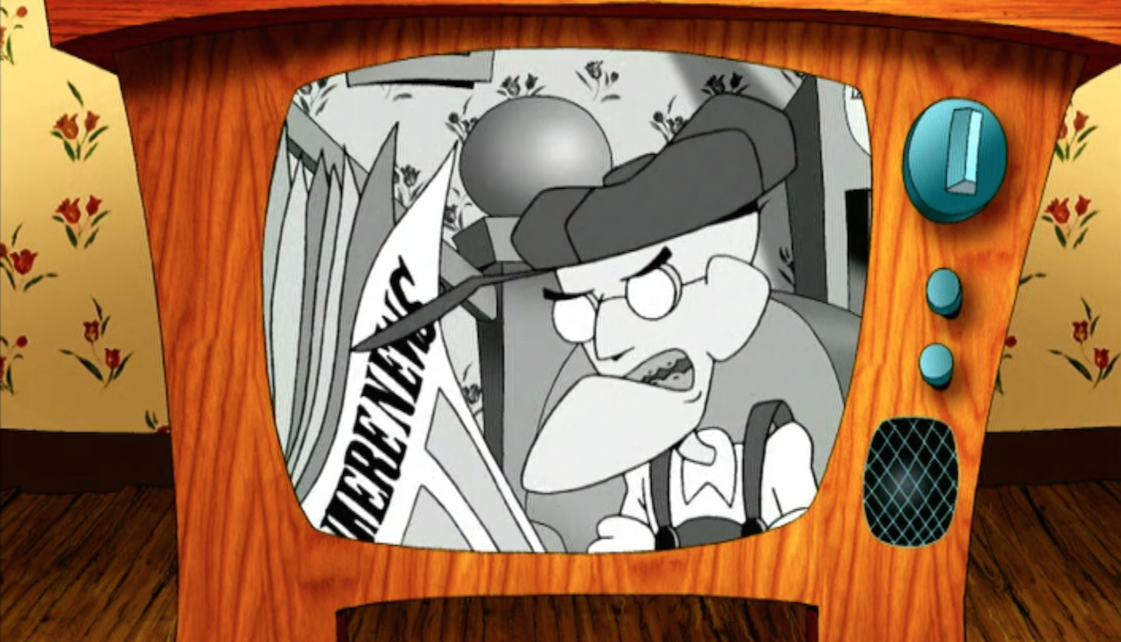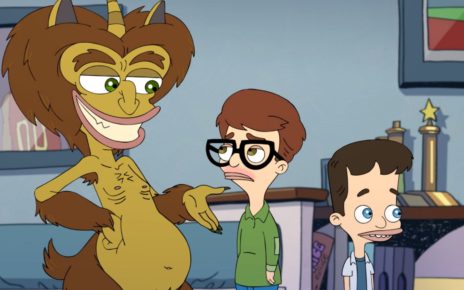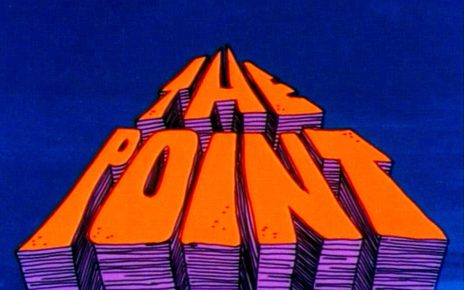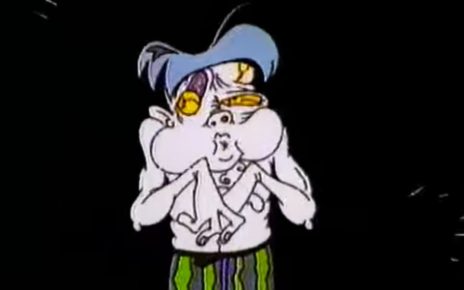Eustace Bagge: Angry White Man
Eustace Bagge, the curmudgeonly farmer from Courage the Cowardly Dog, is maybe the biggest asshole in the history of cartoons, and that’s saying something. This is a medium that has given us (in no particular order) Montgomery Burns, Rick Sanchez, both Squidward Tentacles and Plankton, Gargamel of The Smurfs fame, both Fred Jones and Scrappy Doo, Scar, Johnny Bravo, Eric Cartman, Jimmy Pesto, Sr., Kevin from Ed, Edd n Eddy, and both Dr. Thaddeus “Rusty” Venture and his shithead father, Jonas Venture, Sr. (Note that these are all biologically male characters and, unless they are actual animals, they are also all white. But we’ll get there, trust me.)
The competition is stiff. Yet Eustace blows them all out of the water. Courage the Cowardly Dog may have ended in 2002, but the 2016 Presidential Nightmare gives us a bit more context for who Eustace is. Watching the show today, it’s as if the creators went out of their way to work in every Middle-American Trump supporter cliché they could, offense and decorum be damned. To be fair, not all Trump supporters are Eustace (some of them are far richer), but I think we can make a pretty educated guess on how Eustace would vote.
For one thing, just look at this dick:

That is the look of a man who lives tens of miles from the nearest lily-white town and is worried about “the Mexicans” and “the blacks.”
That is the look of a man who loves the phrase, “Not on my watch!”
That is the look of a man who remembers nothing of his childhood fondly. (Sad, but true.)
That is the look of a man who will vote for Donald Trump, then rally the “2nd Amendment people” to find Hillary Clinton after the show is over.
That is the look of a man who abuses dogs with glee.
Point made, I think, but it’s important to note that there are genuine similarities here. Eustace Bagge is a caricature of the Crappy White Middle-American Male. He’s obsessed with money. He’s obsessed with television. He’s a bossy jerk to everyone around him except his mother — and only because he’s a chip off that even tougher block.
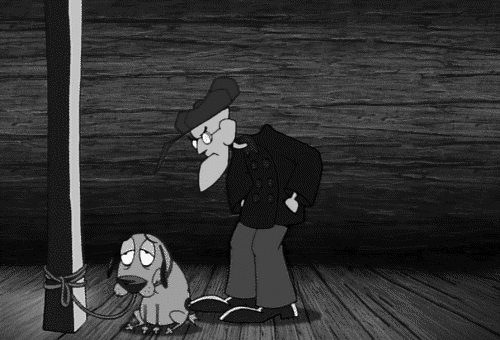
What’s more, Eustace’s greatest pleasure in life is picking on the little people, specifically his wife Muriel’s cowardly dog, the titular Courage. He pulls out a hideous mask on the regular to scare Courage out of his mind, and delights in the little dog’s fear. He repeats to the poor pooch, ad nauseum, what amounts to his catchphrase: “Stupid dog!” In a show packed to the brim with terrifying villains, Eustace mistreats and scares Courage the most.
Any of this starting to sound familiar?
The thing is, there’s a reason Eustace sucks so much—his life did, too. He’s an unattractive man who was an unattractive boy. His father neglected him, his mother and brother abused him, and he was never particularly talented at anything. His endless greed and sloth—the desire to stockpile money for no reason other than to stockpile it, the desire to sit around watching TV and do nothing else—are a direct result of a life that has given him nothing to hope for.
Yet Courage protects Eustace whenever the chips are down. Perhaps his canine intuition gives him a glimpse at what really makes Eustace tick—or maybe it’s just Courage’s loyalty to Muriel that does it. And Eustace, as expected, still treats him like shit, even though Courage is pretty much the only reason he isn’t getting eaten by a puddle siren or mutated into a giant foot fungus on a daily basis.
I think there’s a metaphor here.
Thanks for reading The Dot and Line, where we talk about animation of all kinds. Don’t forget to ❤ this article and follow us on Twitter and Facebook.


